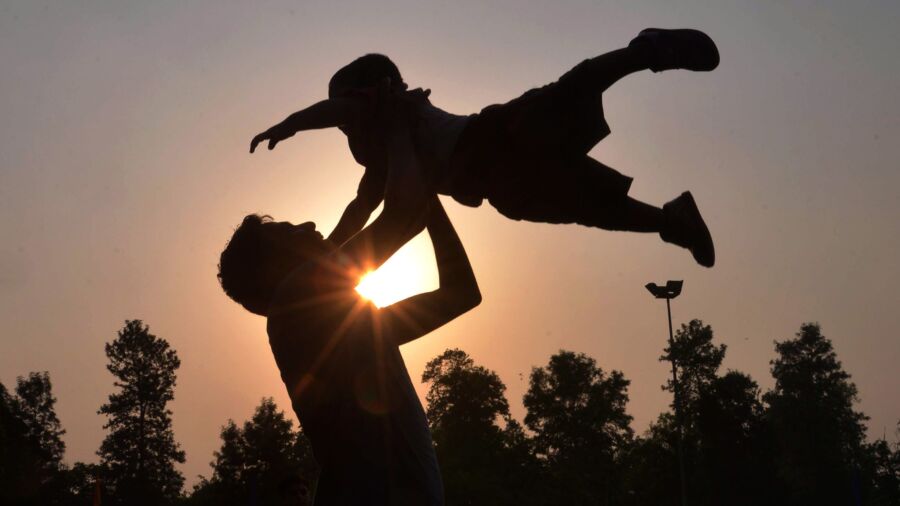Roughly one in four U.S. children are living in fatherless homes, causing undeniable negative effects on the children’s behavior and mental health, according to a report published by the America First Policy Institute (AFPI).
Comparing several dozen studies conducted from 1987 up to 2022, the AFPI—a non-partisan research institute working “to advance policies that put the American people first”—found clear correlations between children raised in fatherless homes and developmental challenges ranging from bad grades, anxiety, and suicide to violent behavior, drug use, and criminality.
According to data from the U.S. Census Bureau, approximately 18.3 million children across America live without a father in the home, comprising about one in four American children. Eighty percent of single-parent homes are fatherless.
“Children with an actively engaged father perform much better in school,” the AFPI noted, being 33 percent less likely to repeat a class and 43 percent more likely to score top grades.
With fathers present at home, data suggest that the average school-aged boy spends 30 minutes per week in one-on-one conversations with his father, while spending 40–60 hours per week online, playing video games, or watching TV.
Still, even that much time together would seem to make a world of difference. The report said the effect of fathers being absent was “staggering,” with their children having far worse overall mental health and behavior.
“These children are often burdened with lower self-esteem than other children, and they do not understand why their fathers abandoned them. This leads to a number of emotional problems like anxiety, social withdrawal, and depression, and it also leads to an increased risk of suicide and other forms of self-harm,” the AFPI wrote.
Data from the Department of Justice suggest that—even though this group comprises just a quarter of all youth—63 percent of youth suicides occur in fatherless homes, as do 85 percent of children with behavioral disorders.
The link to crime and incarceration is also clear. “Some data suggests that fatherless kids are 20 times more likely to be incarcerated,” the report states.
It also reveals that the absence of fatherly guidance is a far greater factor in youth delinquency than the absence of a father’s income.
The issues associated with broken homes, and especially with absent fathers, are well known by professionals in the field, the report states: “71 percent of teachers and 90 percent of law enforcement officials state that the lack of parental supervision at home is a major factor that contributes to violence in schools.”
A 2022 Rasmussen poll showed that 84 percent of Americans believe a strong family is the foundation of a strong nation. They also believe that parents bear the primary responsibility for raising their children—or at least that they should. Only 11 percent said that raising children is a community responsibility. Sixty-five percent were convinced that children who grow up fatherless face significant disadvantages in life.
The AFPI said it wishes to address the disincentives to both marriage and family embedded in federal tax and social welfare policies, and to amend them on a legislative and policy basis.
At the same time, the AFPI understands that no “one-size-fits-all” government solution to the crisis exists.
“Americans believe that it is the community’s responsibility, more so than the government, to take care of fatherless children,” it said, adding that local churches and faith-based organizations are in a good position to play a positive role, as could mentorship programs, athletic leagues, and civic service opportunities.
The AFPI is calling on officials and community leaders to support a pro-fatherhood campaign that would share the joys of fatherhood. “Amplification from athletes, celebrities, musicians, actors, and national role models can push the importance of fatherhood to the forefront of public consciousness,” it said.
The AFPI believes that resolving the fatherhood issue can have a unifying impact on all of society.
A number of Republican lawmakers have been active in introducing pro-family legislation in the last couple of years. Notably, Sen. Marco Rubio (Fla.) has introduced seven bills that seek to help young families, focusing mostly on pregnant women and new moms.
With many families now having two income providers, parenting is often burdened by busy agendas. “Laws in our country should work to chart a new course and help parents balance child-rearing, work, and other priorities throughout day-to-day life,” Rubio wrote earlier this year.


